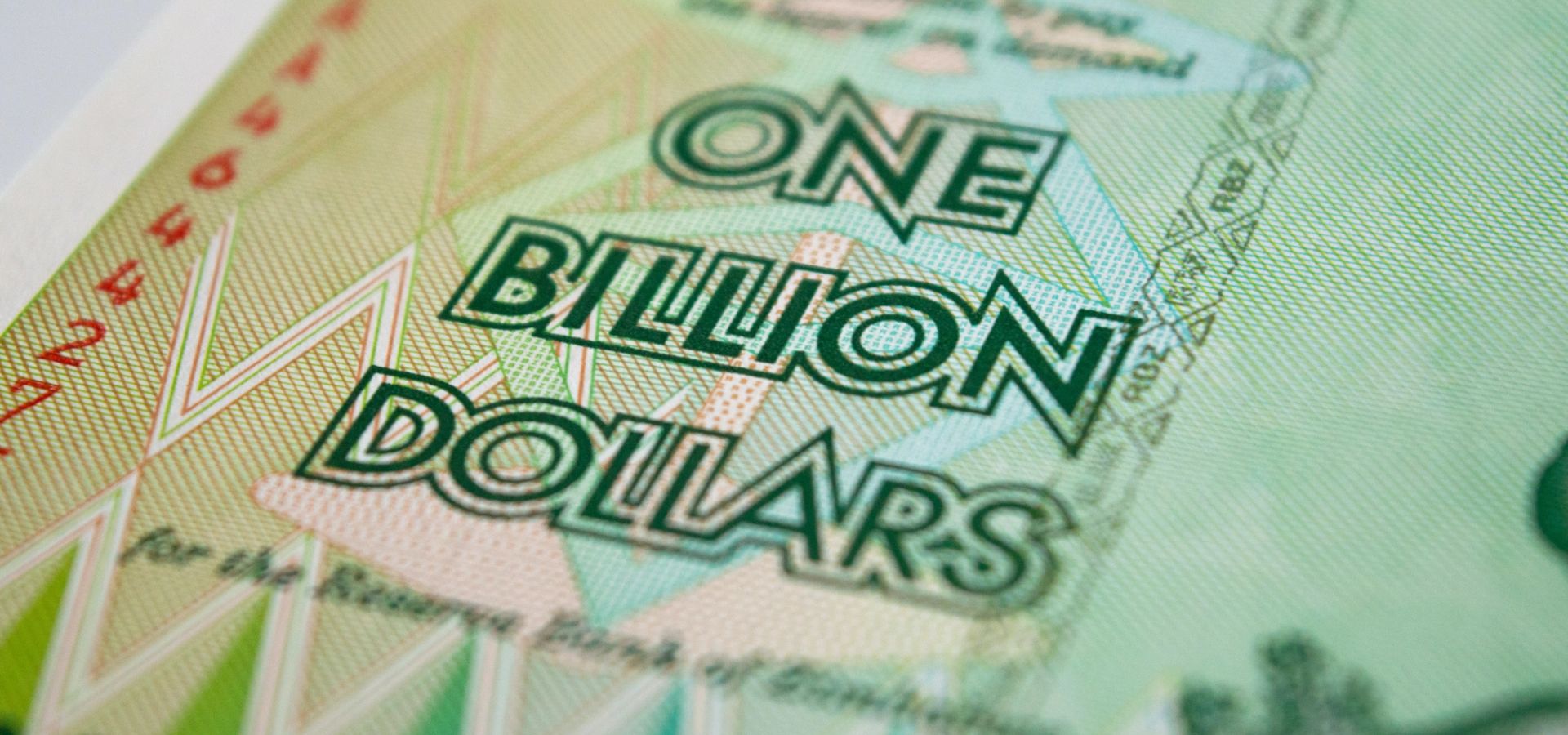
Inflation and its effect on the Airbnb economy
Inflation is still soaring all over the world, while central banks are increasing their interest rates in the hopes of taming the beast. What does that mean for the Airbnb economy and you as a host?
The goals of this article are the following:
- To estimate the current situation of the global economy, driven by inflation.
- To infer the impact of the economy on the short-term rental market for the near and mid-future
- Give sensible advice on running your Airbnb business under the given circumstances.
Inflation and the global economy
First, let's acknowledge that the current economic situation plays out on a global scale. We're all so dependent on each other in terms of trade, industry, resources, and logistics that there are not many places left in the world that can keep going as if nothing happened.
Rate hikes of the FED and other central banks appear to be falling short of taming the beast that inflation is. Their effects will arrive only delayed in the real world, probably at least six months after their introduction.
However, those rate hikes do influence mortgage rates in real time. As it looks now, more people might lose their recently bought properties (especially) under flexible mortgage plans. That means the real estate market may consolidate, but it's yet to see whether more current owners will lose their properties or more fresh investors will buy up the cheap(er) estates and turn them into their own Airbnbs.
Supply and demand dynamics
First, let's get clear on demand quickly: We are facing winter (this article was written in October 2022), and inflation keeps stealing money from our pockets. It seems like an obvious and righteous conclusion that demand will dry out. Especially places without seasonal attractions (like skiing) in the northern and western hemispheres will likely have a hard time in the coming months.
The supply side seems way more complicated to me in this case. There are mainly two issues with it:
- There are two main contradicting trends that I can see (and I will get to these in a moment).
- Both these are only picking up, and I haven't been able to find recent enough statistics on them to get a somewhat firm idea of what's happening.
That being said, the first trend is apparently a growing number of hosts - think supply (according to Airbnb, the number of new hosts grew by more than 50% in Q2 2022, compared to Q2 2021).
On the contrary, I can't get rid of the feeling that Airbnb has been promoted a lot as "the passive-income business machine", almost like a get-rich-quick scheme. That, the low cost of mortgages (up until the peak of the COVID crisis), and real estate generally having the image of the best and probably safest investment, might have blown this up.
In multiple conversations, long-time Airbnb hosts confirmed me without exception. They all revealed that their local market was beyond saturated. The average observer may not have perceived it like that after witnessing the mad tourist influx in the summer of 2022, but we have to treat that as an abnormality.
Another abnormality is where the price fraction of the supply. If the supply increases, you expect its price to plunge in typical market situations. That's clearly not the case yet, however. Increasing housing, renting, mortgage, and even living costs of the hosts naturally show in the listing prices and will boast it further. All while the buying power is decreasing.
Therefore I believe the supply is going to bounce back hard. Since that is also going to be the case for the demand, as previously established, the absolute numbers playing out in specific cities will dictate the equilibrium.
What you can do now

The signs seem to hint at a deterioration in the future for short-term rentals in Europe and the USA (which happen to be the main markets of Airbnb).
It seems like a good idea to take a look at other regions which can convince with a pleasant (or exotic) climate and affordable life costs (whereas I am mostly thinking of South-East Asia, South America, and Mexico). While I think you may run into many regulatory and trust issues, purely economically, building an Airbnb business in these regions seems like a viable option.
Suppose you already have an Airbnb in the USA or Europe and intend to keep operating it. In that case, you should take a very close look at your very local market situation (e.g., the city or neighborhood you're in). Keep an attentive eye on the demand / supply intersection and charge as close to it as possible.
Essentially the name of this solution is offering the fairest price possible. This may sound too trivial for good advice, but the data I have looked into in a few example locations suggest that people are breaking out more to the extremes now. Prices are incredibly cheap (still the minority, though) or super expensive. Hosts are clearly confused and reacting more volatile to the tense economic situation.
Be aware that a fair price is not merely what is asked for (e.g., what you see as listing fees from your local competitors). It is where demand and offer meet. Understand if and for what prices people are willing to pay for their stays.
So it would be best if you tracked what places are being booked for which prices. Observing what prices your competitors ask for is not enough. When you do market research on Airbnb and search for listings in your area, you see just listing prices. You are not getting the whole picture. You want to see at what price listings similar to yours peak at their occupancy rate.
It is now more important than ever to keep a calm, calculated mind and remember the basics. Don't give in to various fears. You are running a business, and there is no room for emotions like fear or greed - especially these days and in the pricing part of it.
🧑🏫 Practical how-to:
It's pretty tricky to track your local market economics and competition for short-term rentals. You can perform the exact search over and over every day and observe how it's going. Still, unless you're willing to spend regular hours to keep track of Spreadsheets, you're left with a gut feeling more than precise numbers.
There are several data analysis tools for Airbnb:
- airdna.co - This seems to be the best option in terms of data richness, but it's also the most expensive. Prices vary greatly based on the areas you want to track and the payment interval. For example, tracking the whole of New York City will cost you $100 / month. Following the whole city of Sofia, Bulgaria, will cost you only $40 / month. Yearly discounts can turn out huge. I'm not sure if an annual plan makes sense yet, but for the next few months, the data surely could help you get your apartment rented by finding the best prices for your listing).
- mashvisor.com - You can sort short-term rentals by descending occupancy rate. Then, all you need to do is decide where your listing fits in and adjust the price accordingly.
- alltherooms.com - Another clean and adequate analysis tool.
We are not affiliated with any of the listed services in any way, these are absolutely genuine recommendations.
Some of them offer free trials, but all of them should be able to provide you the data you are looking for. Have a look around and just pick the one that you like most and that fits your budget.
Alternative recommendations
Alternatively, this may be the best time to invest and do much-needed restorations if you have the spare change. Take a step back from all the economic frenzy and look at how you can practically increase the value of your place to attract more people in the future.

This is where your guests will likely spend most of the time in your Airbnb.
Browse products nowLast but not least, the final advice I want to give you is to be curious and attentive to the market situation every day. These are unstable times, and tiny changes can have tremendous impacts in such trying times that come in the blink of an eye. Keep your finger at the pulse, or you may miss when it changes dangerously.
Observe the market and natural resource prices like gas and electricity, track political changes, and various aid payments that countries pay their citizens. Make sure you don't get surprised in case a severe COVID wave reemerges, along with restrictions.
Also, pay to the changes that Airbnb (or other renting platforms) introduce on all levels. For example, just recently, Brian Chesky (@airbnb CEO & founder) pointed out how they are going to work on the pricing display:
Whether this change will be purely visual or not, be sure that it will have a significant impact on the overall Airbnb booking rate. Properly and timely adjusting to changes (in case there is anything to adjust for you as the host, of course) will give you an edge over your competitors who lag behind.